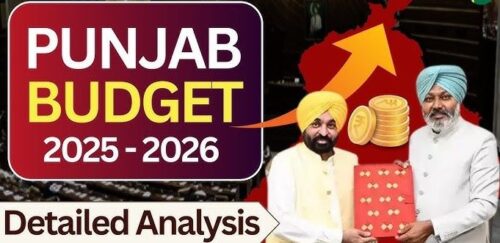
He has no post, no chair, no file — yet every order in Punjab begins with his smile. Welcome to the new model of governance: remote-controlled democracy.
Once upon a time, Punjab had a Chief Minister. Now it has a Chief Announcer in Delhi and a Chief Follower in Chandigarh. The Constitution says the state is governed by its elected Chief Minister, but reality says it’s governed by whoever holds the microphone in Delhi. Arvind Kejriwal, the great “Delhi master of promises,” seems to have found a new stage — Punjab — where he can make announcements without holding responsibility.
Recently, at a power sector event, Kejriwal proudly declared, “There will be no power cuts in Punjab from next summer.” Wonderful news — except for one small detail: he is not the Chief Minister of Punjab. Yet, there he stood, laying foundation stones, addressing the people, and even promising 24-hour power supply — while the actual Chief Minister, Bhagwant Mann, stood beside him, clapping like an invited guest at his own event.
It’s a new art of politics — “remote governance with manual applause.” Kejriwal speaks, Mann nods, and the ministers pretend it’s teamwork. The people of Punjab, meanwhile, are left wondering: who is running the show, and who is running the errands?
Every few weeks, Kejriwal arrives with a new “gift” — free electricity, better schools, mohalla clinics, or even promises of job schemes. But the cheque for those gifts? That’s to be paid from Punjab’s already empty treasury. The irony is thick enough to power a turbine: a man with no constitutional authority in Punjab is promising to fix Punjab’s electricity problem.
The opposition, of course, is enjoying this circus. Sukhbir Singh Badal calls it a “Delhi durbar system.” Partap Singh Bajwa mocks it as “governance by WhatsApp order.” And the people — well, they’ve started calling it the AAP: “Arvind’s Announcement Party.”
From the outside, it looks like Punjab has two governments — one that announces, and one that apologizes. The Delhi boss announces policies, and the Punjab boss explains how they’ll be implemented “very soon.” Every press conference looks like a teacher reading instructions to a nervous student before an exam.
And then there’s the funniest part — the Punjab cabinet, made up of ministers who attend meetings where the main agenda is already decided elsewhere. These meetings must be very efficient; after all, there’s not much to discuss when the decisions have already come from Delhi.
This strange arrangement has given birth to a new constitutional question: “Can a state be governed by someone without an official chair?” If yes, then India might soon not need Chief Ministers at all — just remote links to Delhi with strong Wi-Fi.
Meanwhile, Bhagwant Mann continues his comedic balancing act — Chief Minister by title, subordinate by reality. Once known for his humor, he now provides it unintentionally. His role in government resembles that of a local host introducing the main speaker: “And now, please welcome, the real power behind Punjab!”
Punjab, once proud of its federal spirit, now feels more like an extension counter of Delhi. The irony burns brighter than any Diwali lamp — the state that fed India’s democracy now lives on reheated political leftovers from the capital.
As Kejriwal keeps making announcements “on behalf of Punjab,” and Mann keeps endorsing them like a loyal brand ambassador, the people can’t help but laugh — bitterly, but knowingly. The state that once demanded more autonomy is now run by more authority — from elsewhere.
So, next time Arvind Kejriwal arrives to lay another foundation stone, perhaps he should also unveil a new monument —